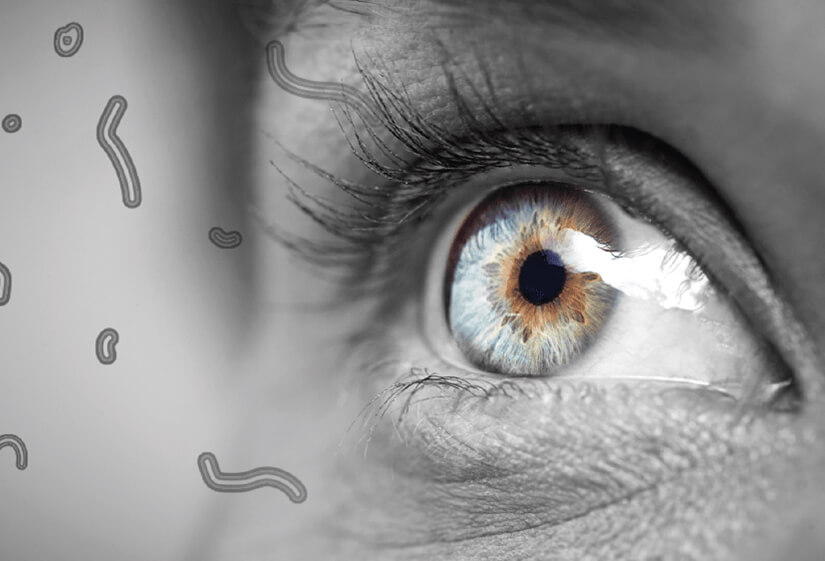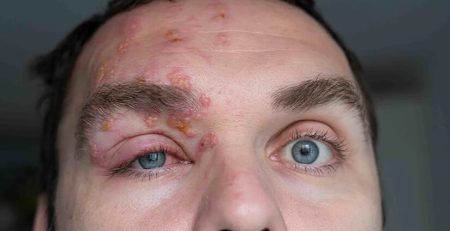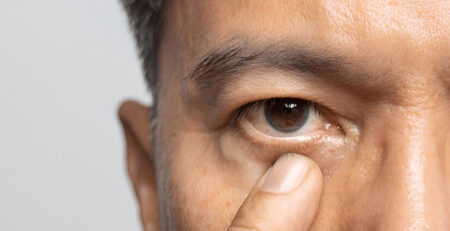What Are Eye Floaters and what is its treatment?
Are Those Tiny Shadows in Your Vision Something to Worry About?
Ever noticed tiny specks, squiggly lines, or cobweb-like shapes drifting in your vision? These are called eye floaters, and while they may seem harmless, they can sometimes indicate underlying eye conditions. Floaters are more noticeable when looking at a bright background, like a clear sky or a white wall. If you have been wondering why they appear and how to manage them, keep reading to understand everything about floater eye treatment and what can be done to improve your vision.
What Are Eye Floaters and Their Causes?
Eye floaters are tiny, gel-like clumps inside the vitreous humour—the clear, jelly-like substance filling your eyeball. They cast shadows on the retina, creating the illusion of objects floating in your line of sight. The most common eye floaters causes include:
- Ageing: The most frequent cause, where the vitreous humour undergoes natural degeneration. As you age, the gel-like substance begins to shrink and liquefy, leading to clumping of microscopic collagen fibers. These clumps create shadows on the retina, which you perceive as floaters.
- Eye Inflammation (Uveitis): Infections or autoimmune conditions such as sarcoidosis, tuberculosis or lupus can cause inflammation inside the eye. This inflammation leads to the release of inflammatory debris into the vitreous, contributing to floaters. Prolonged inflammation can also increase the risk of permanent damage to the retina.
- Retinal Tears or Detachment: A sudden increase in floaters, especially accompanied by flashes of light, can be a warning sign of a retinal tear or detachment. The retina is responsible for transmitting images to the brain, and if it gets damaged, it can lead to permanent vision loss. Immediate consultation with an eye doctor in Delhi is recommended if such symptoms appear.
- Diabetic Retinopathy: People with uncontrolled diabetes are at risk of developing diabetic retinopathy, a condition where abnormal blood vessels grow and leak fluid into the retina. This leakage can cause hemorrhages inside the vitreous, forming floaters that obstruct vision. Proper diabetes management and routine eye check-ups can help prevent this condition.
- Eye Injuries or Surgeries: Any trauma to the eye, such as blunt force impact, or complications from surgical procedures like cataract removal, can lead to the disruption of the vitreous gel. This disruption results in the formation of floaters. Post-surgical floaters are usually temporary, but in some cases, they may persist and require floaters eye treatment.
In most cases, floaters are harmless and gradually become less noticeable as your brain adapts to their presence. However, if they suddenly increase in number, appear with flashes of light, or cause partial vision blockage, immediate medical attention is necessary. Consulting an eye doctor in Delhi ensures proper evaluation and treatment to prevent complications.

Are Floaters Dangerous? When Should You Seek Treatment?
Most floaters are harmless and do not require intervention. However, if you experience a sudden increase in floaters, flashes of light, or a shadow across your vision, this could indicate a serious issue like retinal tears or detachment. In such cases, seeking floaters eye treatment from an eye doctor in Delhi or your local specialist is crucial.
Effective Treatments for Eye Floaters
If floaters become bothersome, several treatment options are available:
- Observation and Adaptation
For most people, the brain gradually learns to ignore floaters, making them less noticeable over time. If they do not obstruct vision significantly, doctors may recommend no treatment at all.
- Vitreolysis (Laser Treatment)
This non-invasive procedure uses laser beams to break down large floaters into smaller, less noticeable fragments. It is suitable for individuals with highly disruptive floaters, though it is not always 100% effective.
- Vitrectomy (Surgical Removal of the Vitreous Humor)
In severe cases where floaters severely impair vision, a vitrectomy is performed. This procedure removes the vitreous gel and replaces it with a saline or gas solution. While effective, it carries risks such as retinal tears and cataract formation.
- Dietary and Lifestyle Changes
A healthy lifestyle can support eye health and potentially reduce floaters. Consuming antioxidant-rich foods, staying hydrated, and avoiding excessive screen time can help maintain optimal eye function.
Can Floaters Be Prevented?
While ageing-related floaters cannot be entirely prevented, certain habits can support overall eye health:
- Regular eye check-ups with an eye doctor in Delhi to monitor eye conditions.
- Wearing sunglasses to protect against UV damage.
- Managing conditions like diabetes and high blood pressure to prevent retinal damage.
Don’t Let Floaters Cloud Your Vision
Floaters may be common, but if they start affecting daily activities, consulting an expert is the best approach. Advanced treatments are available for those experiencing severe disruptions in their vision.
If floaters are interfering with your eyesight, visit Dr. Anisha Gupta, a renowned eye specialist in New Delhi, for a comprehensive evaluation and treatment options tailored to your condition.











